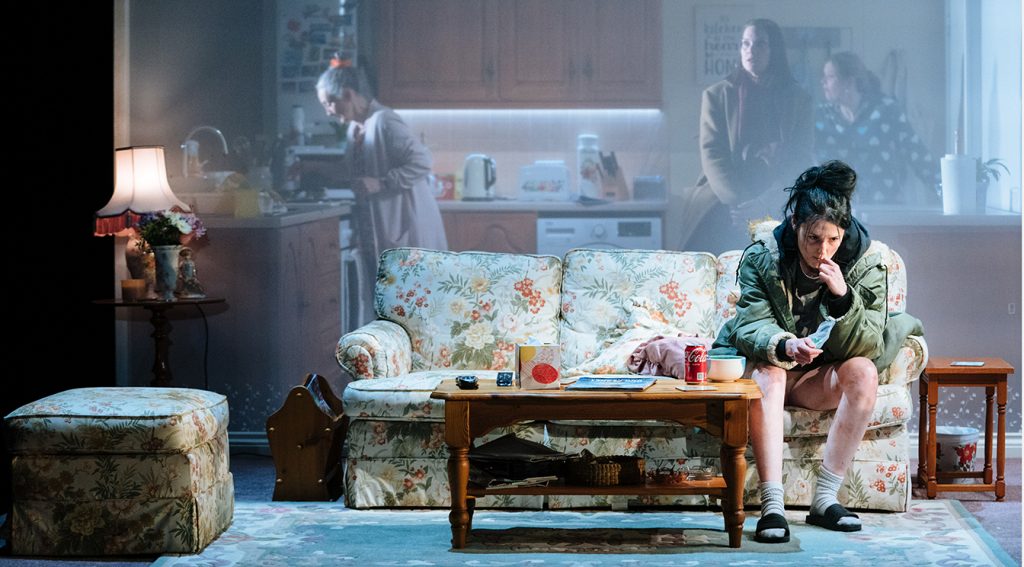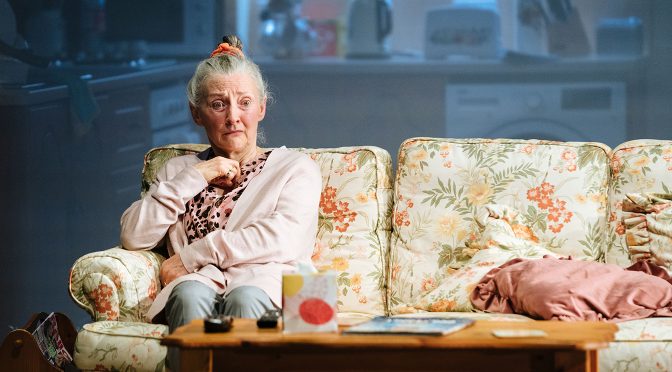Theatre doesn’t get harder hitting than this. Director Róisín McBrinn and playwright Deborah Bruce have worked with the show’s co-producer Clean Break, a women’s theatre company that focuses on the criminal justice system. As a story of how that system impacts on traumatised lives, Dixon and Daughters is intense, provocative and powerful.
The insights gained from in-depth research have led to a script with unquestionable authenticity – which doesn’t make Dixon and Daughters easy to watch. No fewer than six women, five from the same family, show the complexity of abuse. What has happened to them isn’t easy to think about, let alone watch. Bruce charts how past events have shaped lives and endanger futures.
Exploring reactions to abuse proves profound. First, there is denial – we meet Mary, the mother of the family, on her return from prison, incarcerated for perverting the course of justice in a case against her husband. Bríd Brennan’s performance in the role is flawless, with plenty of twisted logic and perverse outrage convincingly depicted. When Mary confronts the truth, Brennan gives a raw performance that is painful to see.
Mary’s daughters Julie and Bernie (further excellent performances from Andrea Lowe and Liz White, respectively) share some of this wish for silence, but their trauma is clearer to see. Julie has become an alcoholic in another abusive relationship. Bernie focuses on her daughter Ella (Yazmin Kayani), who has her own story to tell about the pervasiveness of male power.

Ella is joined by a woman called Leigh, who Mary met in prison. This extremely damaged character is vividly portrayed by Posy Sterling – she is frightening and heart-rending. And (of course) Leigh is a victim of abuse herself. In this substitute daughter for Mary, Bruce balances frustration and compassion, which serves as an example of how complex the relationships in her play are.
“Make peace or make trouble”
Mary, Julie, and Bernie juggle with the decision to “make peace or make trouble”, with fear leading to damaging decisions. It’s easy to judge, but the drama gives us a chance to stop and question. It is Mary’s stepdaughter, Briana, who has proved the father’s nemesis – her actions led to the court case that imprisoned Mary. Briana’s self-care, mantras and all, make the character jar – at first. But with the aid of Alison Fitzjohn’s charismatic performance, she becomes an inspirational figure who helps herself and others.
There is a danger that each character in the play represents a response to issues, but this potential flaw is avoided through surprising humour and the strong performances. A motif of the house itself being a witness to events fails to convince or make the most of Kat Heath’s ambitious set – the idea feels tacked on. And it must be admitted that, dramatically, there are alarms but no surprises in Dixon and Daughters – the play is depressingly predictable. Nonetheless, by broadening her concern to misogyny Bruce highlights the systemic and cruel nature of male power with incredible authority.
Until 10 June 2023
Photos by Helen Murray

